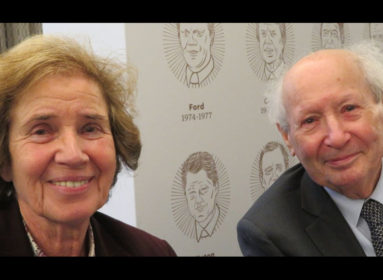Speaking on the second day of this year’s Israeli Presidential Conference, the brilliant historian Niall Ferguson demurred from the widespread embrace of the “Arab Spring.” For one thing, he believes its name is a misnomer. It is patterned after the “Prague Spring” and the eventual fall of Communism in 1989, but the Harvard professor thinks that’s a bad analogy. Today’s revolutions grow out of high unemployment, high food prices, a high proportion of young people in the population, corruption, and connectivity, which is very different from the failure of the Communist economies.

Niall Ferguson
The West assumes the uprisings in the Arab world to be inherently progressive, which Ferguson terms “a profound error.” The use of social media is not necessarily democratic because “the medium is not the message.” Conflating them was “one of the great errors of the 1960s,” in Ferguson’s view. Social media can convey views both democratic and undemocratic, and the outcomes in the Arab world may well be undemocratic. History teaches that the potential for democracy is linked to the strength of civil society, a quality which is largely lacking in the Middle East.
Ferguson’s view is that all great revolutions are characterized by four phases. First comes euphoria, as in Tahrir Square and the world’s reaction to it. Then, according to this eminent historian of economics and business, capital flees the country, unemployment consequently rises, and there is an economic crisis. Radical elements then seize the initiative, blaming “enemies without and enemies within,” which in turn leads to civil war, external war, or both.
For Israel, this means that new Arab regimes could redouble their efforts to delegitimize Israel. The violence from these power shifts in the region could cause economic harm. “Would-be hegemons” like Iran and Turkey might seize on these crises and use them for their own ends. And world opinion might turn more severely against Israel if the uprisings are misread.
All this is unfolding in a time when, as Prof. Ferguson put it, Western ascendancy is ending after 500 years, Europe is gradually disintegrating, and the United States is retreating from its imperial role because of its fiscal crisis. Amid the optimistic faith in social media and the spirit of democracy, this sobering analysis comes as a useful corrective.
Hartford native Bob Goldfarb is president of the Center for Jewish Culture and Creativity in Los Angeles and Jerusalem. He blogs regularly for eJewishPhilanthropy.com. This article first appeared in the Jewish Journal.







 Southern New England Jewish Ledger
Southern New England Jewish Ledger














